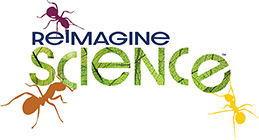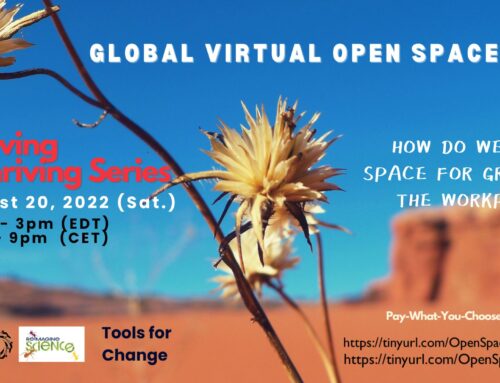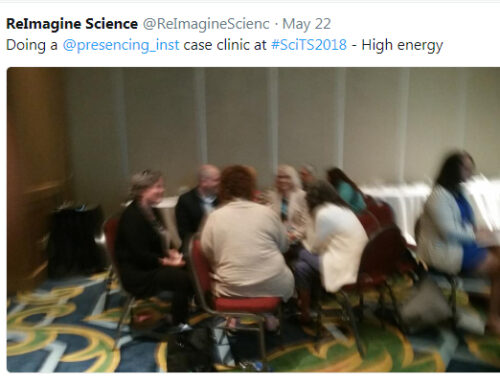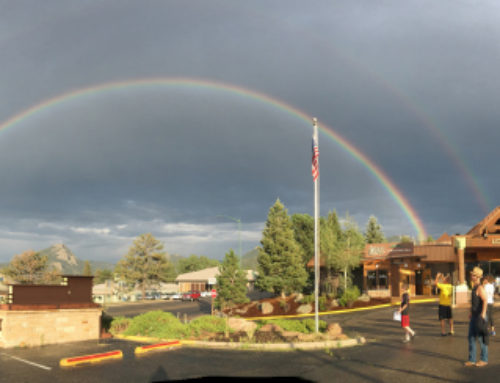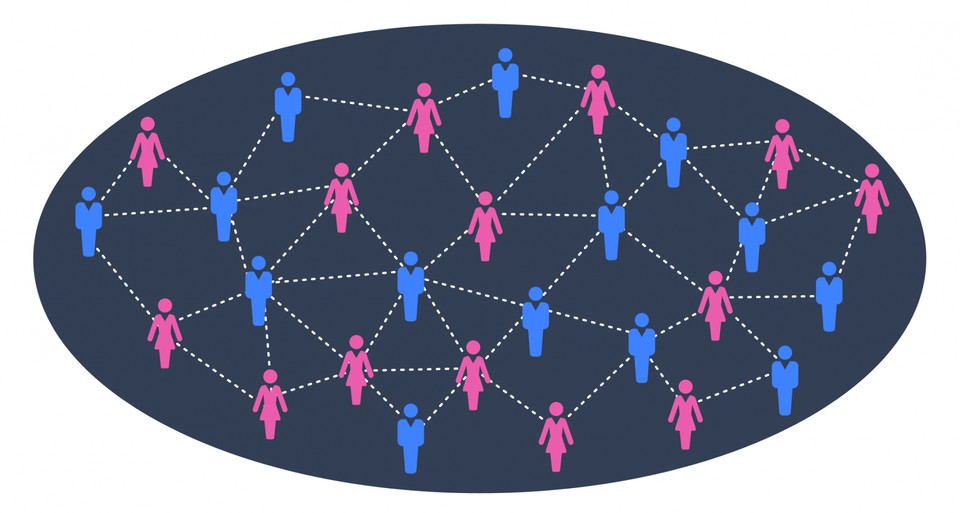
ReImagine Science rolled out our next phase of Third Space dialogs on March 27th at Stanford University. The presentation – The Third Space: Shifting the hierarchy of academia to release the best potential of science – was a joint effort of Kennan Salinero, executive director of ReImagine Science, and Doug Kirkpatrick, a recognized leader in self-managed, distributed leadership.
This event begins a dialogue that we are interested in sharing with whole organizations and cities across the country. We hope to initiate a deep dive, bringing the interested public, city and regional leaders into critical conversations by sharing key information about the true effects and costs of our current systems of science.
Our interactive dialogs will follow the general structure of our signature Third Space® events: three segments, beginning with a personal story, then sharing data and the ‘big picture’ landscape, followed by exploratory exercises designed to foment and catalyze new thinking, new projects, new directions. In this next iteration, ReImagine Science is interested in creating a ‘fourth space,’ sharing information from the front lines of young scientists in academia.
We questioned whether academic science could only operate as a top-down organizational structure. Complexity research shows that distributed networks, populated by individual agents following set rules, can create highly organized, scalable systems. Many structures or patterns that mimic natural systems can be created using agent-based modeling (ABM) algorithms with scant rules – the cone shell pattern of cellular automata being one such example. Humans, and in particular networks of humans, also exhibit patterns of behavior. A shift in human-based systems to distributed networks for decision-making and self-organizing is part of the current cultural zeitgeist.
An extreme example of this is Morning Star, a tomato processing company, which began practicing organizational self-management in 1990. At Morning Star, everyone is equally empowered to communicate, initiate action, innovate, and execute. There are no bosses, only ‘colleagues.’
Doug brought frontline data from the 30-year experiment represented by MorningStar, where there are no bosses and there is no hierarchy. Kennan explored such questions as: What are the underlying decision structures in academia? And why does hierarchy persist? What is the purpose and what are the driving ‘principles’ in the academic world? Kennan asserted that top research universities, while having individual areas of excellence, can be relied upon for tending to two core principles: status or reputation (supported by publication rates and other outward-facing metrics) and cash flow (in particular, grant acquisition, but also including alumni support). Feedback loops clearly exist between these two drivers of success. Missing from this equation are self-regulators or rule sets that motivate interpersonal behaviors. This can negatively impact cooperation and mutualism, and can lead to ‘bad behavior,’ severe power imbalances, and more.
Because of this, we see many of our human resources in the next generation of science dying on the vine, untapped, and drifting in a vacuum with no clear paths to the future.
Is it necessary to debunk the current mythology of a STEM pipeline that is starved of talent? Creative destruction is know to be a powerful element in process and systems change. What will that look like at the interface of science and society? We are entering a time of extraordinary change, from micro-environments to macro-environments, in this open system called ‘Planet Earth.’
We intend to spark new vision, attitudes, and decisive movement into the future. A future that is calling for our best creative efforts on so many scientific fronts. This launch is the beginning of this series of Third Space events around the country.
You can read more about Doug’s work in his two recent publications, From Hierarchy to High Performance: Unleashing the Hidden Superpowers of Ordinary People to Realize Extraordinary Results by Doug Kirkpatrick, Bill Sanders, Dawna Jones, Ozlem Brooke Erol, Josh Levine, Sue Bingham, and Anna McGrath, and Beyond Empowerment: The Age of the Self-Managed Organization by Doug Kirkpatrick. He is about to release a third book with Forbes Books: The No-Limits Enterprise: Organizational Self-Management in the New World of Work.
Doug also created a ‘Periodic Table’ of Organizations and Practices that concern themselves with workplace culture, and recently published a Huffington Post blog on Great Workplace Cultures.
